What is the message of Easter Sunday? Local clergy share perspectives
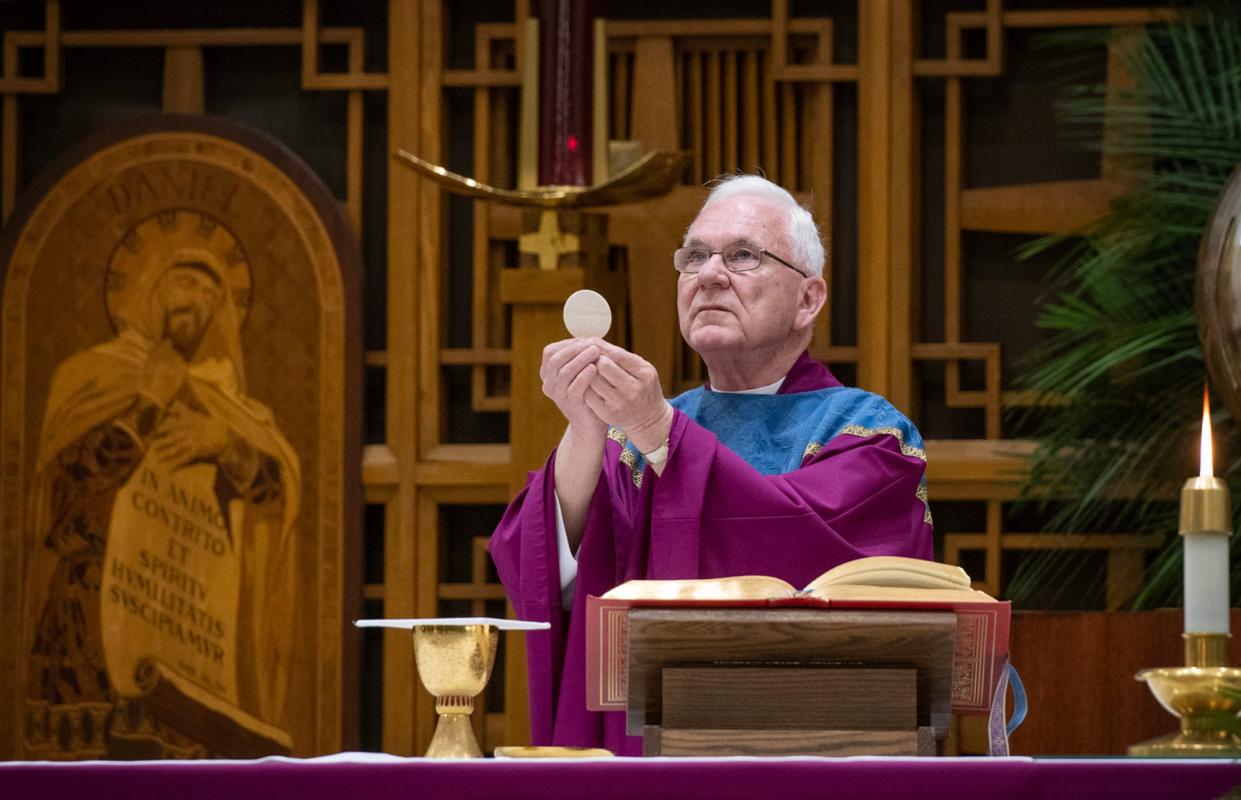
- Oops!Something went wrong.Please try again later.
WORCESTER — When parishioners fill church pews throughout Worcester this Easter Sunday, they’ll not only be celebrating the resurrection of Jesus Christ but also reflecting on the messages imparted on them by their pastors.
Church leaders from around the city shared with the T&G the different messages they hope to leave with their parishioners when Easter Sunday service comes to an end this weekend.
Some are planning to use the opportunity to reflect on current events around the world, like the war in Ukraine, and how parishioners can, in the face of death and destruction, find comfort and hope in the concept of resurrection.
More: What is Passover? Why is it celebrated? What you need to know about the Jewish holiday
Others plan to look at resurrection from other angles, such as looking at it as a way of healing and moving on from past troubles or issues.
See what each of the pastors plan to share this weekend.
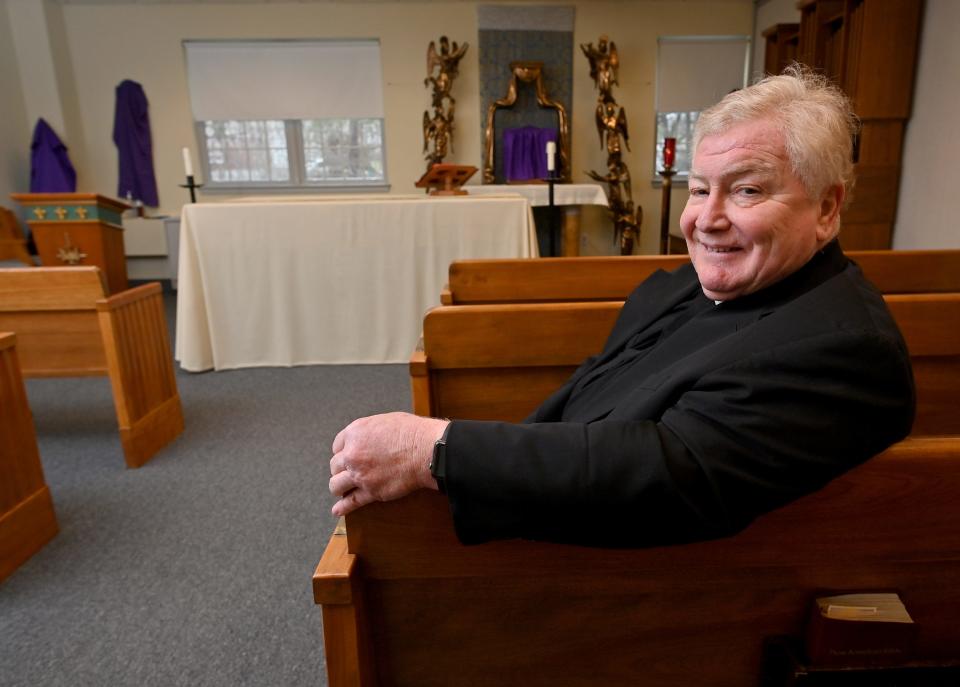
The Rev. Monsignor F. Stephen Pedone at Our Lady of Mount Carmel and Our Lady of Loreto Parish
For those attending Easter service at Our Lady of Mount Carmel and Our Lady of Loreto Parish, they can expect to hear a message about viewing this time as an opportunity for a “fresh start” from Pedone.
“That's what Easter is all about … resurrection and expressing new life and hope, and new beginnings, new starts,” Pedone said. “God gives us the grace to start all over again, and he's renewing the face of the earth, and he wants us to take part in it, because we're part of his plan.”
Part of his message came from wanting to escape the “winter doldrums” and the gloomy feeling he had throughout the season.
More: Ramadan, Passover and Easter overlap, highlighting challenges, common ground
The other part, which also focuses on healing, came from divisions that have come between people throughout the country.
“We've got to get over them and put them aside. We’re people and we need to come together,” Pedone said. “Forget whatever has happened in the past, and don't let that other stuff continue to divide us. We need to remind ourselves what we have in common.”
The recent sudden death of a deacon at one of the parishes marked a “tremendous loss,” Pedone said, but also an opportunity to help parishioners find some comfort this Sunday.
While the death is difficult to handle, especially for the family, there is also comfort knowing that there is “eternal life” afterwards, he said.
“It's interesting that he died at the beginning of Holy Week, … the most sacred time of year for Catholics, and he's already seen the face of God,” Pedone said. “He's experiencing now what we hope to experience one day. Resurrection is about leaving death and entering into the fullness of life.”
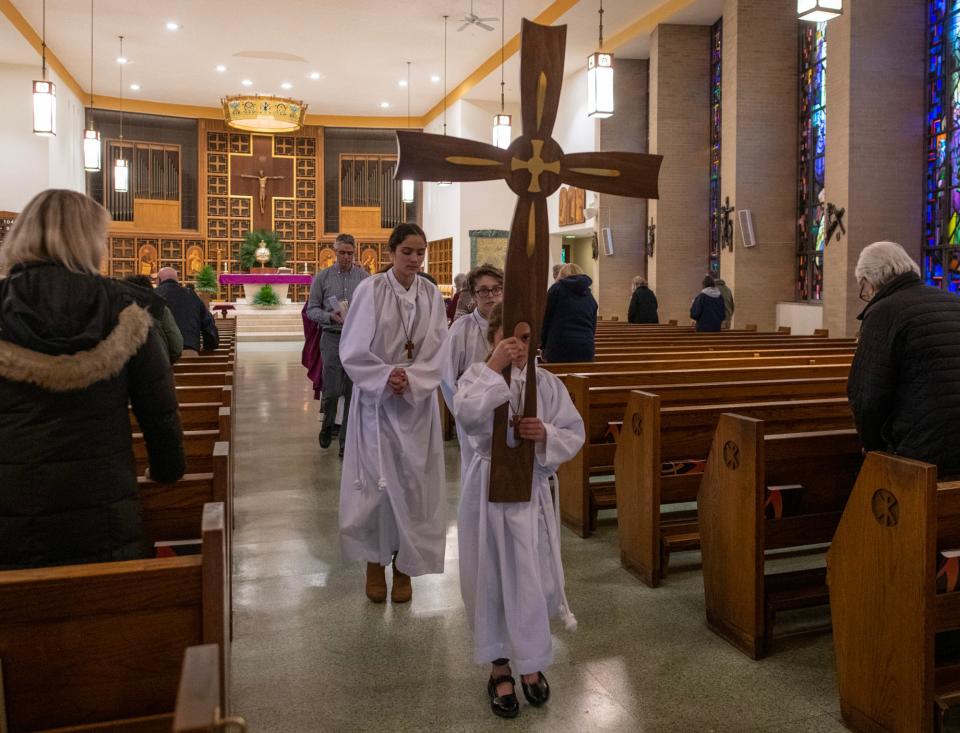
The Rev. Monsignor Thomas J. Sullivan at Christ the King Church
When parishioners leave Mass this Sunday, Sullivan said he wants them to leave feeling a sense of “elation, hope and happiness.”
Easter, which he said is the “greatest feast,” for Christians, is not only a symbolic celebration of the resurrection of Jesus but a historical celebration as well.
“Ancient people were prescientific, but they weren't dumb — they knew that dead people stay dead,” Sullivan said. “But the resurrection is unique in history, and that Jesus, the son of God, truly was raised from the dead.”
Knowing that there is life after this life, he said, and that people will share eternal life with Jesus is where they can find hope in death and live honorably until then.
More: Ramadan, Passover, Easter and the journey of a lifelong learner
When crafting his message for this weekend, Sullivan said there were several things weighing on his mind.
“There's a lot of hopelessness today in our world … you see that in a rising amount of suicide, you see that in drug use, you see that in broken relationships,” Sullivan said. “I think if you believe in a living Jesus, who helps us, that's when we find our hope.”
He said the war in Ukraine is another issue he has been thinking about a lot lately, the thousands of people, both Ukrainian and Russian, who have died since the conflict began.
But despite the tragic events taking place there, people can find a sense of hope since those whose lives were lost will be resurrected and find life after death.
“(Easter) is not a symbol, it's a reality. People don't die for symbols, like those early Christians,” Sullivan said. “You do that when you believe in a person.”
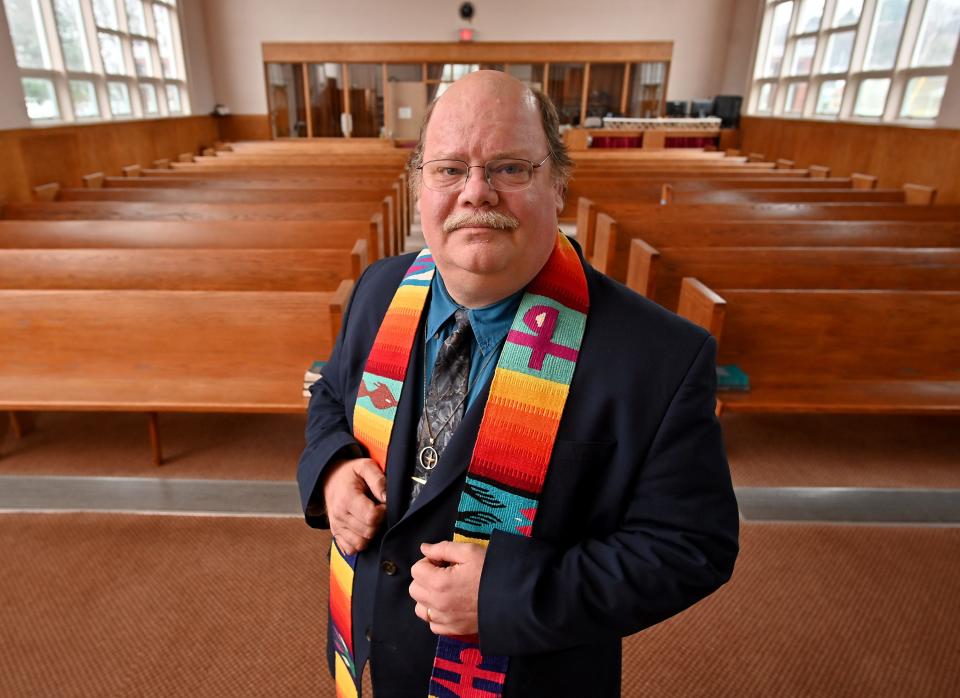
The Rev. Aaron R. Payson at Unitarian Universalist Church of Worcester
When Payson finishes delivering his message this year, which he titled “Loyalty of Fickle Friends,” he hopes that parishioners will leave with a sense of the potential of “human community.”
The title of his message, he said, comes from a “tragicomic commentary” on the disciples doing the opposite of what Jesus told them to do. If he told them to stay silent, they would “go ahead and tell everyone,” and when told to tell everyone, “they’re silent.”
But the focus of the message, he said, is on a scholarly analysis of the way the Gospels, particularly St. Mark, write about the resurrection, and how the time during which it was written — during the destruction of Jerusalem — may explain why it ended the way it did.
The Gospel of St. Mark’s version of the resurrection has two endings, Payson said, including one in which the women who saw Jesus’ resurrection ran away from the tomb without saying anything to anyone, and one in which the news of Jesus’ resurrection was communicated to the other disciples.
While written during a different time, this ending can be seen reflected in “our own context,” of current events during a time of “cultural violence, warfare, lots of upheaval."
“I think what it does for us is it asks us to think about … the end,” Payson said. “What will the ending be? ... What is the story that needs to be told? What are the values that need to be reflected? What do we carry with us? And what do we communicate to the world that will make a difference at a time when the world is so bruised and hurting?”
This message is one worth pondering at this moment, he said, as the war in Ukraine continues and as this year marked the 20-year anniversary of the start of the war in Iraq, as well as political upheaval around the world.
"These are not contexts that were unknown to the earliest communities for which the Gospels were first communicated,” Payson said. “There were different historical times, obviously, but they reflect a similar sentiment.”
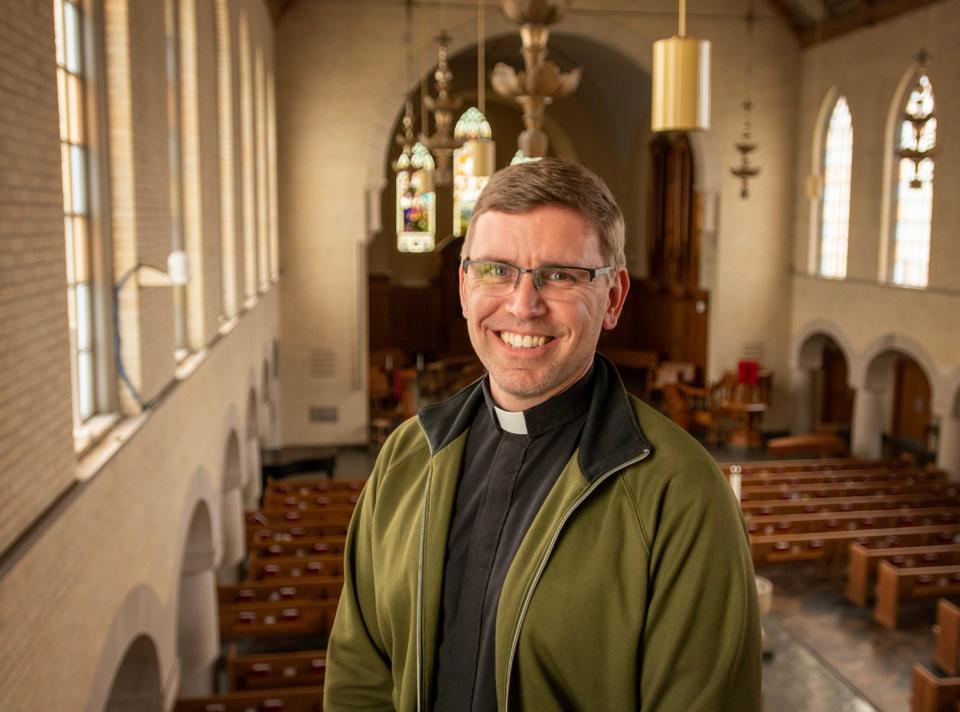
The Rev. Nathan D. Pipho at Trinity Lutheran Church
Pipho said he plans on reading the Easter story from the Gospel of St. Matthew this year, and keying in on details Matthew has that other Gospels don’t.
“All of the details help us understand how Jesus continues to live for us today,” Pipho said. “I'm going to ask three questions: What did the women take to the tomb? Who did the guards represent? And who did Jesus send the women to tell? And so those are details in St. Matthew's Gospel that I think are interesting for us this year to reflect on.”
The church, he said, uses a three-year cycle of lectionary readings, and each of the readings include different details.
While this year will focus on St. Matthew’s Gospel, next year will involve the Gospel of St. Mark and the year after that will focus on the Gospel of St. Luke, all of which tell the story of Jesus’ resurrection differently.
By reading these different versions, parishioners are able to get a complete story,” Pipho said, and be able to “make their own application” between the message being conveyed and real-world events.
“My question of who the guards represent, I am prepared to say that those guards represent systems of evil and oppression in the world and the Easter message is a message of a life and death struggle between the power of God and the power of sin in the world,” Pipho said. “The resurrection of Jesus is good news to us, in the face of empires of evil that want to bring death. "
And while he does not plan to make any connection between real-world events and the story this year, he will personally be reflecting on making it through the COVID-19 pandemic.
“We have lifted all mask requirements, so I am anticipating larger crowds,” Pipho said. “I'm feeling that this will be, maybe, the first Easter Sunday where we're as close to … pre-COVID than we've been in the last couple of years.”
This article originally appeared on Telegram & Gazette: Worcester area clearly share perspectives about Easter Sunday

